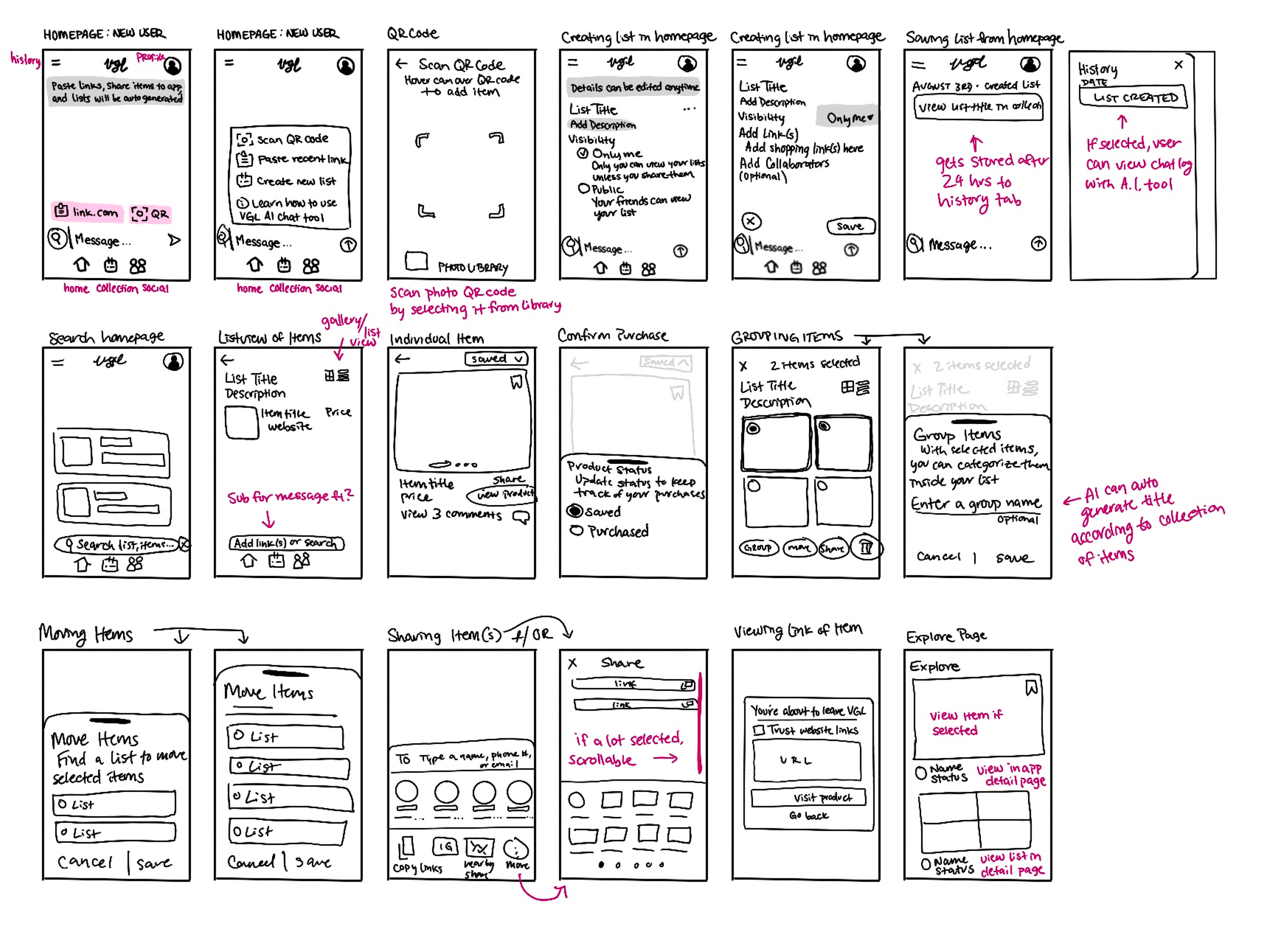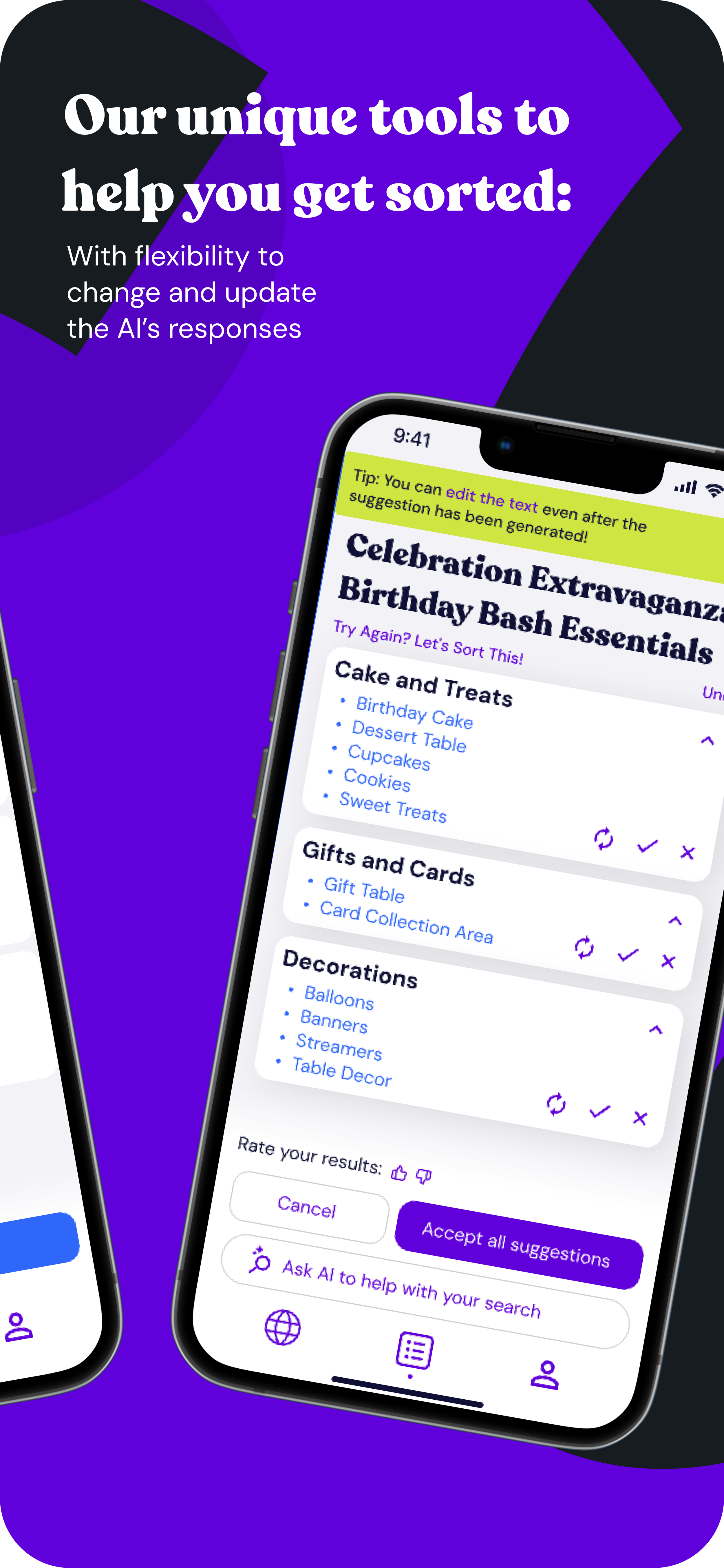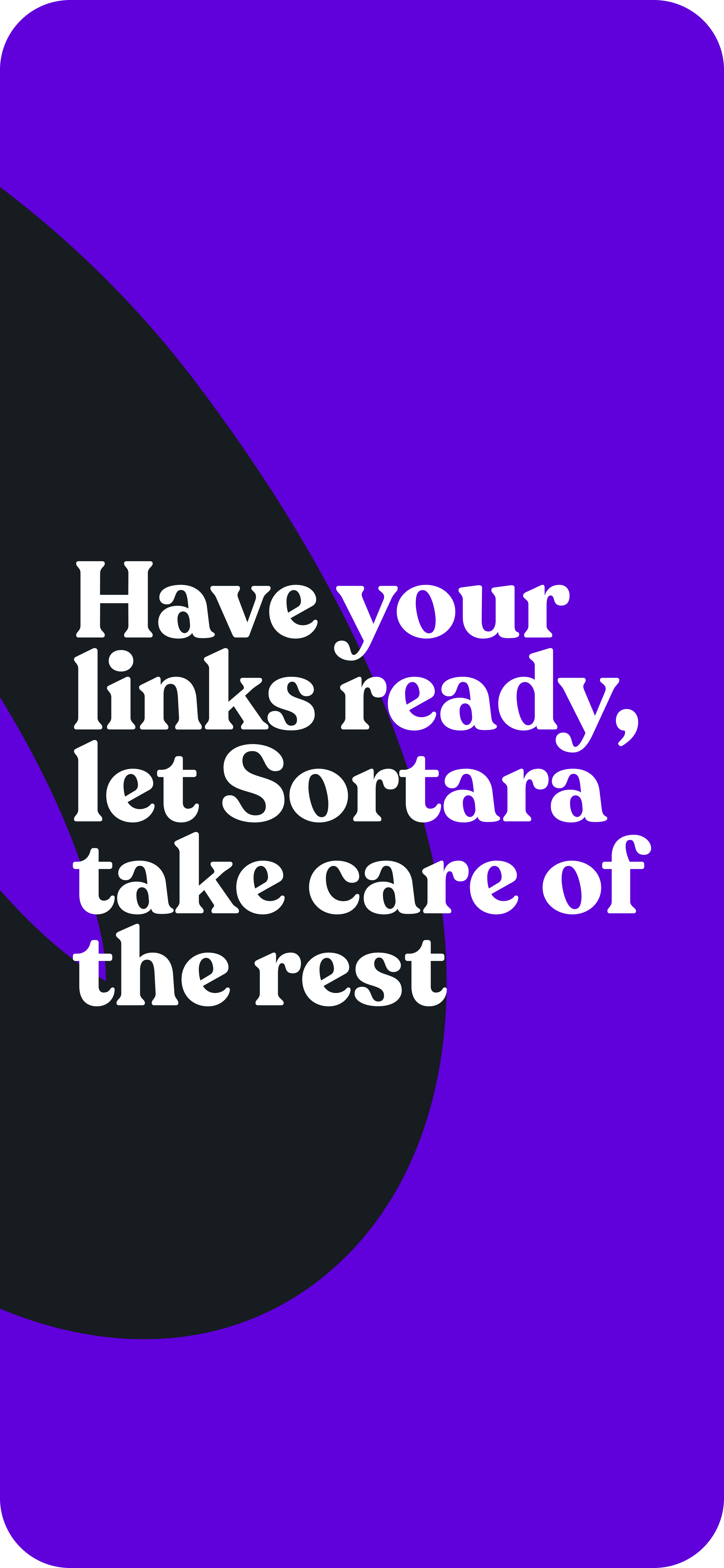sortara
⋆
sortara ⋆
Background
UX/UI Designer and Brand Designer | 5 month contract
Deliverables: Mobile low/high fidelity wireframes, web low/high fidelity wireframes, user admin web view, marketing WordPress website, design system, and 2D/3D prototypes.
The main tools I used during this contract: Figma, Adobe Illustrator, Jira, Confluence, Slack, Zoom, Statista, and Google Drive.
Team: Project Manager, WordPress Web Developer, Software Developers, Backend Developers, CEO, & CTO
Constructing this new brand from the ground up
The CEO of Sortara had many ideas for the brand during the initial design phase. Without a brand, there would be no foundation for the application. After 2 months of collaboration with her marketing team and conducting research, we evolved the brand in parallel to designing the app.
Effortlessly transforming chaos into order, making list creation and management a breeze.
Quick Save allows for quick captures of items for sorting later.
AI Suggestion highlights to users what they can include in their lists.
AI Sort Build generates lists based off user input within the search engine.
AI Smart Sort presents the option to manually or automatically sort.
Branding Research
Partnered with Favoured - Digital Marketing Agency
Strategy
Three user personas, three brand identities, and combine best qualities of sucesses






High Fidelity Wireframes
If I could go back in⏱️time, what would I do differently?
Due to the complexity of the application and its admin portal, I would’ve constructed a more robust information architecture map of the overall application. This push would’ve helped resolved a lot of concerns that arose in the beginning stages of the design phase. The client had introduced an idea for a product she didn’t have a firm vision of so to guide her through the process took longer than the usual timeline. Since this client was more objective orientated, an information architecture map that could be iterated on would’ve saved a lot of time and efficiency.

















